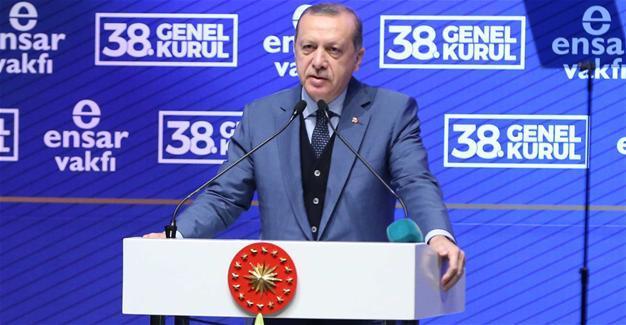We still have problems in social and cultural rule: President Erdoğan
ISTANBUL
 President Recep Tayyip Erdoğan said the government still has a problem in “ruling the cultural and social field” in Turkey, despite being in power for 14 years.
President Recep Tayyip Erdoğan said the government still has a problem in “ruling the cultural and social field” in Turkey, despite being in power for 14 years. “Politically ruling is one thing. Socially and culturally ruling is another thing entirely. We have been in power for 14 years but we still have problems with ruling in the social and cultural field,” Erdoğan said on May 28 at the General Assembly of the Ensar Foundation held at the Istanbul Convention Center.
“Of course there have been pleasant developments,” he said, making reference to the “increasing interest” in religious imam-hatip schools.
“Teaching the Quran and the life of the Prophet Muhammad in all schools is nice. But we still have a lot of deficiencies in raising generations that we have dreamt of,” Erdoğan stated, adding that this goal needs “commitment, faith, and continuity.”
Today there are many useful tools to shape future generations, but the most important factor is the dedicated servants who will turn this ambition into service, the president also said.
“Curriculums that were prepared with an animosity-filled approach to our ancestors and culture in many fields, from our language to our history, have been changed [by the government]. In many places - from the media to the cinema, from science to technology and law - there are still people with minds that are foreign to the nation in the most effective places,” Erdoğan said.
‘Those resisting coup were not Gezi Park youths’
Touching on the July 15, 2016 coup attempt, Erdoğan drew a distinction between those who hit the streets against the coup and the “youngsters” who took part in the anti-government Gezi Park protests of summer 2013.
“Those who came there that night were the ones who loved the country. They set out for the flag, for prayers,” Erdoğan said, referring to those who resisted the coup by taking to the streets on the night of the coup attempt, which left 208 people dead and 1,491 wounded.
















